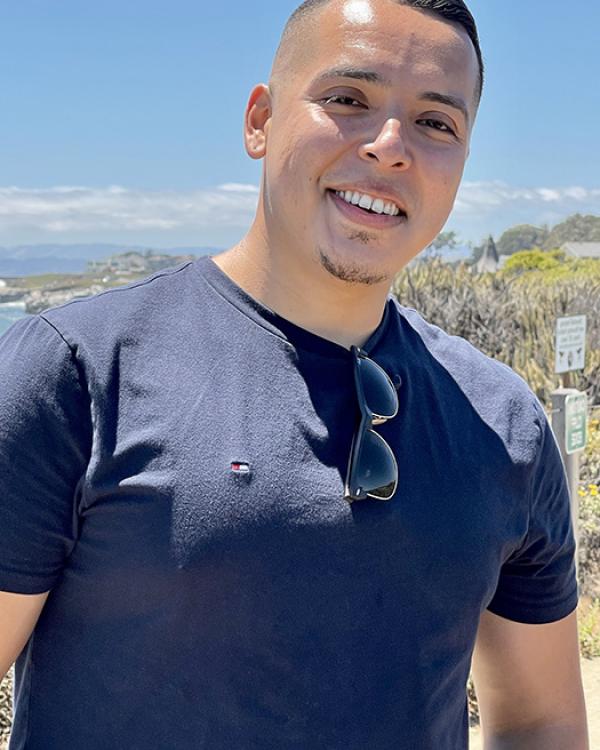
GGSE: How did your background as a dual language teacher lead you to pursue a Ph.D. in School Psychology at UCSB?
Arnold Rodriguez Robles: My work in the classroom is what really sparked my interest in learning how children develop socially, emotionally, and linguistically. Getting to work in a dual-language immersion program led me to want to study the different methods used to help children reach English proficiency since school outcomes for children that don't reach English proficiency can be detrimental. Initially, I didn't know school psychology was a career path within education.
When I met the school psychologist at my site, I received insight and became excited about combining two of my favorite disciplines: education and psychology. From there, I decided to pursue my master's in school psychology and slightly shifted my career goals. Halfway through my master's program, I realized there was a big need for research surrounding language development and how learning disabilities are assessed in culturally and linguistically diverse (CLD) students. I also became interested in assessment development for bilingual practitioners, given the lack of tools currently available. Needless to say, I needed to pursue a Ph.D. to solidify my research skills and fulfill my career goals, hence why I'm here.
GGSE: As a first-generation college student, how has your identity impacted your work?
Robles: To be honest, my educational experience has been rocky, to the point that I was on academic probation at my undergraduate institution and nearly dropped out. I never thought I would end up in a master's program, much less a Ph.D. program, so I'm very fortunate to be here. Reflecting on both my identity and my educational experiences has certainly influenced the nature of my work. I'm a firm believer in intersectionality and how it influences the educational experiences of students from diverse backgrounds, who often are at a disadvantage maneuvering through the education system (both K-12 and higher education). While I’m fortunate enough to have found ways to overcome my obstacles, this isn't always the case for students from similar backgrounds. My goal is to conduct meaningful research rooted in upholding and valuing cultural and linguistic diversity in education and psychology.
GGSE: What excites you most about the future of school psychology research?
Robles: School psychology is a field that is constantly growing and changing. I think we are finally seeing a shift in the education system, as a higher emphasis is now being placed on the social/emotional well-being of children, and multilingualism is now being seen as an asset rather than a setback. I'm most excited about joining a progressive group of researchers, developing methods to support CLD students, furthering the integration of social justice in school psychology, and studying what I'm passionate about—language development.
GGSE: If you have free time, what do you like to do with it?
Robles: In my free time, I enjoy playing video games (Switch and PC), working out, baking, and learning languages.